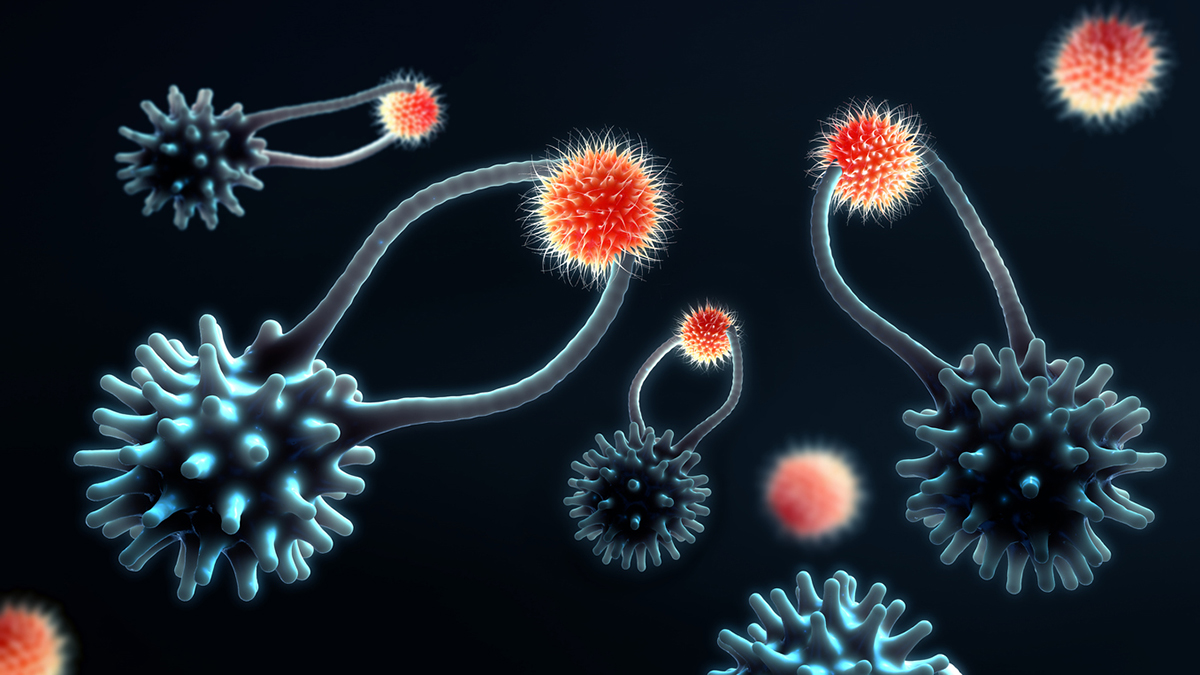
Believers in cell and gene therapy are celebrating excited about what might be a major step forward: A patient with a solid-tumor cancer received T-cell receptor therapy – and it worked.
A report in the New England Journal of Medicine details how engineered T cells reduced the size of a patient’s advanced pancreatic cancer, and has kept the disease in check for nearly one year. The New York Times, NBC News and other media outlets picked up the story. This patient’s survival achievement is a major victory for the field of cell and gene therapy.
“I’m really excited about this,” Carl June, MD, a member of the Alliance for Cancer Gene Therapy Scientific Advisory Council, said to NBC News.
The remarkable story could be the first of many involving T-cell receptor (TCR) therapy effectively treating solid tumors.
History of cell and gene therapy breakthroughs
More than a decade ago, the first cell and gene therapy for cancer gained momentum. CAR T-cell therapy clinical trials started enrolling patients with blood cancers like leukemia and lymphoma. These studies became the evidence that cell and gene therapy was a viable treatment for some types of cancer.
Dr. June, Director of the Parker Institute for Cancer Immunotherapy at the University of Pennsylvania, led these initial trials after helping develop the first effective CAR T-cell therapies.
The focus of the past few years has been trying to repeat this success for solid tumors, including pancreatic cancer. More than 62,000 people are diagnosed with pancreatic cancer in the U.S. each year. Only 10% of patients live for at least five years and 71% have a life expectancy of less than one year.
CAR T cells and TCR therapy: Two ways to strengthen the immune system
The intent of cell and gene therapy is to enhance the immune system to fight cancer. There are a few ways to accomplish this goal.
One type of cell and gene therapy is CAR T-cell therapy. Doctors remove patients’ T cells and send them to a laboratory for modification – the addition of a protein receptor. This protein receptor helps the T cells look for cancer cells expressing a specific protein that distinguishes them from healthy tissue. The cells are then reinfused back into the patient, where they replicate and create an army of CAR T cells.
One of the challenges of using CAR T cells for pancreatic cancer and other solid tumors is reaching the protein target. Solid tumors like pancreatic cancer have most of their mutated proteins inside the cells. Blood cancers usually express a viable target for CAR T cells on the surface, making the job easier for the enhanced immune cells.
TCR therapy and CAR T-cell therapy are similar, but there are a few important differences. Doctors add a new, laboratory-created receptor to T cells extracted from the body. This receptor targets a protein on cancer cells – but not in the same method as CAR T-cell therapy.
TCR therapy targets a specific immune system process, called the major histocompatibility complex, where human leukocyte antigens present fragments of proteins (called peptides) to T cells. The added protein receptor directs the T cells to look for any antigen presenting fragments of the specific cancerous protein. T cells then look for other cells with the same abnormal peptides.
Earlier in 2022, the U.S. Food and Drug Administration approved a TCR therapy called Kimmtrak for uveal melanoma, a skin cancer that forms in the eye. The FDA’s decision made Kimmtrack the first cell and gene therapy approved for any kind of solid tumor.
KRAS as a TCR therapy target for pancreatic cancer
Kathy Wilkes, the pancreatic cancer patient in the study, was diagnosed with pancreatic cancer in 2018. Within a few years, she was nearly out of options. Surgery, radiation and eight rounds of chemotherapy did not help, and the tumor had spread to her lungs.
Kathy, 71 years old at the time and living in Florida, learned a mutated protein was driving the growth of her tumors. This protein, called KRAS, is expressed in 95% of pancreatic cancer cases, 40% of colon cancer cases and 33% of lung cancer cases.
Kathy found a doctor, Eric Tran, at Providence Cancer Institute in Portland, Oregon, who championed TCR therapy. From there, the team at Providence Cancer Institute developed a TCR therapy targeting KRAS fragments in the major histocompatibility complex.
Kathy’s treatment at Providence Cancer Institute began June 14, 2021. One month after she received an infusion of engineered T cells, the tumors in her lungs had shrunk 67%. After three months, they were even smaller.
Now, TCR therapy has controlled Kathy’s disease for one year. It is a celebratory moment for Kathy, her loved ones, and believers in this type of cancer cell and gene therapy.
“I think cancer research is going to build on this,” Dr. June said. “The real question is not if but when this kind of therapy becomes a reality of curing patients with now-lethal cancers.”
Page sources
- Experimental approach to treating pancreatic cancer heralded as a success. NBC News. Retrieved from: https://www.nbcnews.com/health/health-news/gene-therapy-pancreatic-cancer-experimental-approach-shrank-tumors-one-rcna31437. Accessed: 06/03/2022.
- Neoantigen T-Cell Receptor Gene Therapy in Pancreatic Cancer. New England Journal of Medicine. Retrieved from: https://www.nejm.org/doi/full/10.1056/NEJMoa2119662. Accessed: 06/03/2022.
- Reprogrammed Cells Attack and Tame Deadly Cancer in One Woman. New York Times. Retrieved from: https://www.nytimes.com/2022/06/01/health/pancreatic-cancer-treatment.html. Accessed: 06/03/2022.



